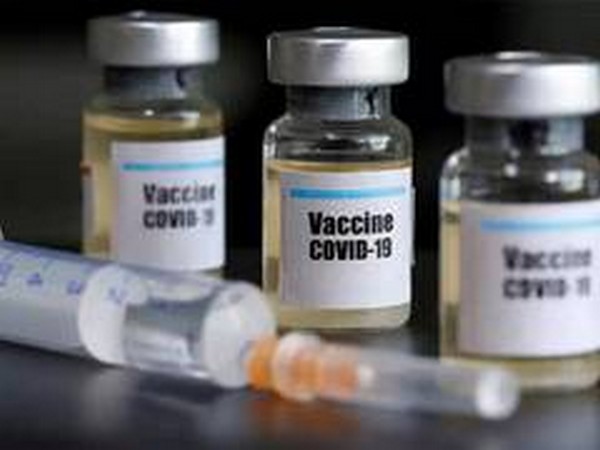Health News Roundup: Mixing Pfizer, AstraZ COVID-19 shots with Moderna gives better immune response - UK study; World Bank says its funding helped deliver 100 million COVID-19 vaccine doses and more
Following is a summary of current health news briefs. Mixing Pfizer, AstraZ COVID-19 shots with Moderna gives better immune response - UK study A major British study into mixing COVID-19 vaccines has found that people had a better immune response when they received a first dose of AstraZeneca or Pfizer-BioNTech shots followed by Moderna nine weeks later, according to the results on Monday.

Following is a summary of current health news briefs.
Mixing Pfizer, AstraZ COVID-19 shots with Moderna gives better immune response - UK study
A major British study into mixing COVID-19 vaccines has found that people had a better immune response when they received a first dose of AstraZeneca or Pfizer-BioNTech shots followed by Moderna nine weeks later, according to the results on Monday. "We found a really good immune response across the board..., in fact, higher than the threshold set by Oxford-AstraZeneca vaccine two doses," Matthew Snape, the Oxford professor behind the trial dubbed Com-COV2, told Reuters.
World Bank says its funding helped deliver 100 million COVID-19 vaccine doses
The World Bank on Monday said its funding had helped deliver 100 million doses of COVID-19 vaccines around the world and it would reach the 150-million mark by the end of the month, if doses arrive as expected. World Bank President David Malpass said the multilateral development bank had contracted for nearly 300 million doses, with some $7.5 billion in vaccine financing operations for 69 countries to be committed by the end of December.
Factbox-Latest on the worldwide spread of the coronavirus
A major British study into mixing COVID-19 vaccines has found that people had a better immune response when they received a first dose of AstraZeneca or Pfizer-BioNTech shots followed by Moderna nine weeks later, according to the results. DEATHS AND INFECTIONS
Factbox: How cruises are trying to keep U.S. passengers safe from COVID-19
Since U.S. cruises resumed in June, travel and tourism operators have enacted vaccine and testing requirements to avoid disruptions that cost them millions of dollars for much of the pandemic. Even with these protocols, at least 17 people tested positive for COVID-19 on a Norwegian Cruise Line Holdings Ltd ship that disembarked in New Orleans recently, highlighting the challenges in curbing the spread of COVID-19 in confined spaces. One member of the crew has a suspected case of the Omicron variant.
Mexico's capital rolls out first COVID-19 booster shots
Mexico City officials will begin offering a third COVID-19 vaccine dose to residents over the age of 60 on Tuesday, officials said, part of a government plan to roll out booster shots. President Andres Manuel Lopez Obrador said last week the third doses would be made available as soon as possible, beginning with elderly people who are more vulnerable to the coronavirus.
Omicron may raise re-infection risk; booster protection documented
The following is a summary of some recent studies on COVID-19. They include research that warrants further study to corroborate the findings and that has yet to be certified by peer review. Re-infection risk may be higher with Omicron variant
WHO advises against blood plasma treatment for COVID-19 patients
The World Health Organization on Monday advised against using the blood plasma of patients who have recovered from COVID-19 to treat those who are ill, saying current evidence shows it neither improves survival nor reduces the need for ventilators. The hypothesis for using plasma is that the antibodies it contains could neutralize the novel coronavirus, stopping it from replicating and halting tissue damage.
Next pandemic could be more lethal than COVID, vaccine creator says
Future pandemics could be even more lethal than COVID-19 so the lessons learned from the outbreak must not be squandered and the world should ensure it is prepared for the next viral onslaught, one of the creators of the Oxford-AstraZeneca vaccine said. The novel coronavirus has killed 5.26 million people across the world, according to Johns Hopkins University, wiped out trillions of dollars in economic output and turned life upside down for billions of people.
New York City expands COVID vaccine mandates for children, private sector
New York City expanded its array of COVID-19 mandates on Monday, setting vaccine requirements for children as young as 5 years old and for workers at all private-sector companies as the highly transmissible Omicron variant pushes into more U.S. states. The most-populous U.S. city set a Dec. 27 deadline for all 184,000 businesses within its limits to make their employees show proof they have been vaccinated, Mayor Bill de Blasio said.
Malaria deaths rise by 69,000 in 2020 due to COVID-19 disruptions, says WHO
Healthcare disruptions linked to the coronavirus pandemic helped malaria kill 69,000 more people in 2020 than the previous year, but a worst-case scenario was averted, the World Health Organization said on Monday. In total over 627,000 people globally - most of them babies in the poorest parts of Africa - were killed by malaria last year compared with 558,000 in 2019, the WHO said in its annual malaria report.
(This story has not been edited by Devdiscourse staff and is auto-generated from a syndicated feed.)










